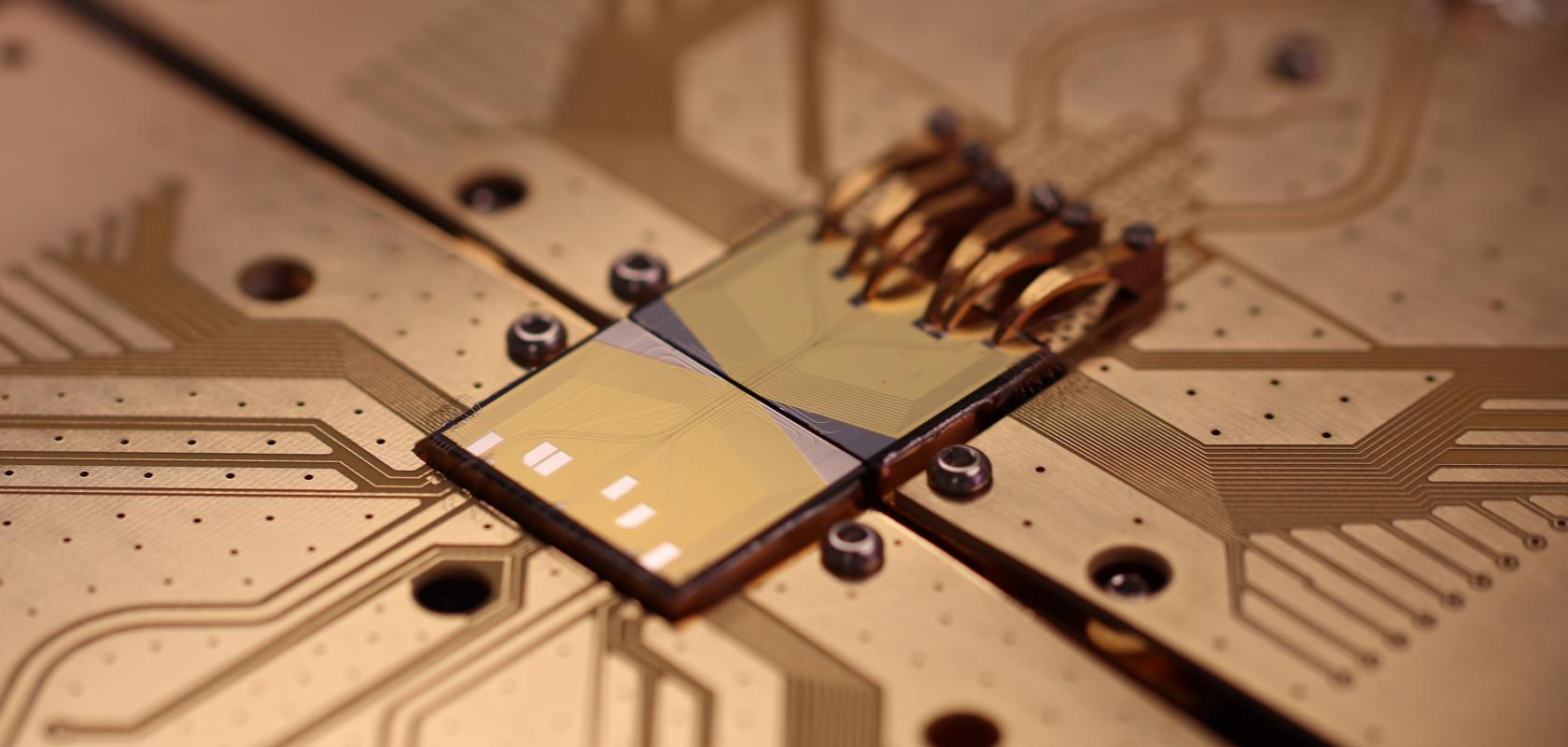Scientists from British start-up Universal Quantum and the University of Sussex have pieced together quantum computers like a jigsaw – allowing them to further scale quantum systems, according to a paper published in Nature Communications on 8th February 2023.
Universal Quantum also won a €67m contract from the German government last month to build two computers based on its unique architecture.
System scalability is fundamental for large-scale quantum computers (QCs). For QCs based on trapped ions, architectures such as the quantum charge-coupled device (QCCD) are used to scale the number of qubits on a single device.
However, the number of ions that can be hosted on a single quantum computing module is limited by the size of the chip being used. Therefore, a modular approach is of critical importance and requires quantum connections between individual modules. In this research paper researchers presented the demonstration of a quantum matter-link in which ion qubits are transferred between adjacent QC modules.
The paper states: “we show that the link does not measurably impact the phase coherence of the qubit. The quantum matter-link constitutes a practical mechanism for the interconnection of QCCD devices. Our work will facilitate the implementation of modular QCs capable of fault-tolerant utility-scale quantum computation.”
Today small-scale trapped-ion QCs with up to 10s of qubits have been demonstrated. At this scale, quantum logic can be created using a single linear ion crystal as a qubit register. Multi-qubit operations are mediated by the Coulomb interaction within the crystal.
“However, as the crystal size increases, limitations on the motional mode density make scaling a single register to larger qubit numbers challenging. One architecture that allows for multiple qubit registers in its design is the quantum charge-coupled device (QCCD) which consists of an array of segmented electrodes” notes the research paper.
The resulting research project found that inter-module ion transport is a practical approach to create an interface between WC modules. “Two neighbouring surface-electrode ion-trap modules were connected using ion-transport operations, realising a fast, deterministic and high-fidelity quantum matter-link.
“This method of linking modules naturally extends the QCCD architecture from one to multiple modules. This demonstration will therefore facilitate the implementation of a scalable QCCD architecture capable of fault-tolerant utility-scale quantum computation” the paper continues. “Future work will focus on implementing and characterising transport with sub-quanta motional excitation on the two-module system. Implementing this technique then holds the potential for an additional order of magnitude increase in the inter-module shuttling rate.”
Quantum computing in Germany
The German Aerospace Center (DLR) has commissioned Universal Quantum to build a fully scalable trapped ion quantum computer. This comes as part of the German Quantum Computing Initiative founded by the German Ministry of Economy, a wider quantum initiative by the German federal government.
This result demonstrates a realistic path to build quantum computers that can solve disruptive industry problems – and this German contract is another validation of UQ’s technology.
With an investment of €67 million in total, the DLR is bringing two world-first innovations to Hamburg: The first one will be a single-chip quantum computer with a sophisticated electronic quantum computer chip. The second one will be a multi-chip quantum computer that will initially consist of up to 100 qubits.
Professor Winfried Hensinger, chief Scientist, Co-Founder and Chairman of Universal Quantum stated: "Our team has worked intensively on the development of our technology. With the DLR contract, we have reached an important milestone and received further recognition of the quality of our technology. Key to our technical concept is the inherent scalability of the quantum computers we are building. Our mission is to solve many fundamental problems of our time - this is the next step along the way."


